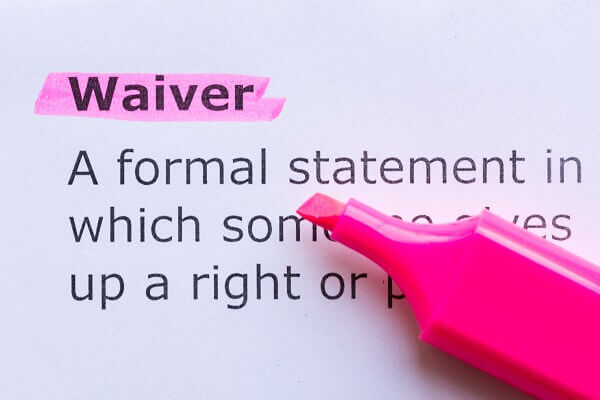
Washington Injury Attorneys for Victims who Signed Liability Waivers
When you sign up at your local gym, you might have to sign a contract or agreement. Often, you do not bother to read it. You probably assume that it states the usual legalese about your rights, but have you ever thought about the fine print? Signing the highlighted portion could put you at risk, and also allow the company to get out of any obligations they have to you, their customer.
A recent case highlights the issue with signing forms and agreements without reading. In November 2014, a 63-year old was working out with a personal trainer when she fell and fractured a bone. She stated in her suit that the trainer was pushing her too hard and forced the fall. The fitness company, LA Fitness, was sued by this victim.
Because the woman signed a release form, however, LA Fitness prevailed in the lawsuit and they did not have to pay a settlement.
What Can We Learn from the LA Fitness Example?
Most gyms and recreational facilities require that you come in and sign a release or waiver of liability when you use their facility. This ensures that the company is not sued for your injuries. There is only one option: Sign to participate. If you do not sign, you cannot join the gym or use the recreational facilities.
These waivers are commonly signed without having been read. Those who sign them cannot negotiate the terms of the agreement later, either. The waiver can be held up by the court, too, such as in the LA Fitness case where the woman’s agreement was used against her.
When someone signs a waiver and uses the facility, he or she is basically telling that facility that he or she will not sue them if injury occurs – even if that company causes the injury.
In the LA Fitness case, the woman’s attorney tried to argue that she had no choice but to sign the agreement. However, the court said that she did. She could have not signed and joined another gym. LA Fitness did not coerce or force her into that agreement. So, by signing the release, the courts felt that she assumed the risk.
Releases Are Not Always Upheld
A release may help LA Fitness in this case, but it is important to note that even if you sign a release, that agreement may not always be upheld by the court. There are instances where the courts will not enforce a liability waiver, especially if the facility or employee of that facility was grossly negligent. In these instances, the courts will ignore the agreement and the defendant may be liable for all compensation.
Using Common Sense and Reading Agreements
As a consumer, it is in your best interest to always read any document you sign. While you may assume it just has the general information that all agreements have, you may be surprised to find wording in there that allows the company do whatever they want without consequence.
Injured at a Gym? Contact a Personal Injury Attorney
If you or a loved one was seriously injured at a facility, even if you signed a waiver, you must speak to an injury attorney. An attorney can assist you with filing your claim against that company and help you represent your case in court.
Speak with a personal injury lawyer from Brett McCandlis Brown & Conner PLLC now by calling 800-925-1875 or request more information online.


